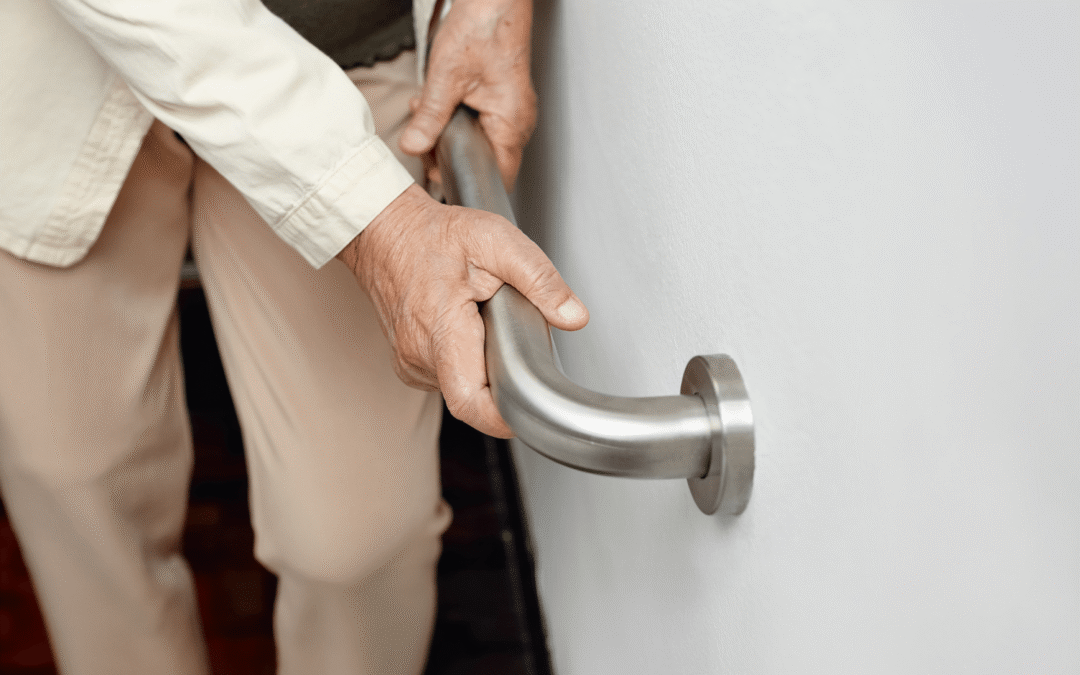According to a 2024 AARP report, most adults over 50 want to remain in their current homes as they age, staying connected to their communities and the life they know.
However, maintaining that independence can become difficult when daily tasks, mobility, or health changes start getting in the way. In-home care provides the right level of support at the right time, helping seniors continue living safely and happily where they feel most comfortable.
In this article, we’ll explore:
- What in-home care includes
- How it helps seniors stay independent longer
- The types of home health services and support available
- The benefits for seniors and their families
- Answers to common questions about in-home care
What Is In-Home Care and In-Home Services?
In-home care is support provided to seniors in the comfort of their own home. Instead of moving into a facility or relying only on family, older adults receive help with everyday tasks from professional caregivers who come directly to them.
This approach allows seniors to stay where they feel most at ease while receiving the right level of assistance.
Services vary based on personal needs and health conditions. Care may include help with bathing and grooming, dressing, preparing meals, light housekeeping, and reminders to take medications. Companionship is also a key part of in-home care for seniors. A friendly visit, a shared meal, or a ride to an appointment can make a big difference in confidence and connection.
Every care plan is customized. Some seniors may only need a few hours of support each week, while others benefit from daily or overnight care. The focus of a personalized care plan is always the same: providing practical help that protects independence and promotes comfort at home.
Common areas of support include:
- Personal care for hygiene and mobility
- Help with meals, cleaning, and daily routines
- Medication reminders and basic health monitoring
- Transportation and companionship to stay engaged
- Flexible scheduling that adapts as needs change
Why In-Home Care Is Important for Seniors
As daily tasks become harder, many older adults face a difficult trade-off: struggle through daily routines alone or move away from the home they love.
In-home care removes that trade-off. These compassionate caregivers fill the gaps aging can create while allowing seniors to keep the routines and surroundings that bring comfort and familiarity.
Support That Keeps Each Day Safer
A caregiver’s presence can prevent small issues from turning into bigger ones. Help with moving around the home lowers the chance of falls.
Medication reminders keep treatment plans on track. Even help with cooking or cleaning reduces risks from clutter, spoiled food, or household hazards. These are simple changes that support health and a better quality of life.
Connection That Protects Confidence
Just as meaningful as safety is the emotional side of aging. Having someone to share conversation, meals, or activities with makes the home feel fuller and more supported.
Seniors gain confidence knowing they don’t have to face each day alone. Instead of losing independence, they feel more secure and more in control of how they spend their time.
In-home care allows seniors to stay where they feel most like themselves, while continuing to live safely and stay engaged in daily life.
How In-Home Care Helps Seniors Maintain Independence
Independence doesn’t disappear with age. It just needs the right support. Caregivers help with daily activities such as:
- Bathing and dressing with standby support
- Preparing meals and light housekeeping
- Running errands or helping with shopping
Seniors stay safer and more confident while still handling what they’re able to do on their own.
Making Everyday Life Easier
When maintaining a home becomes overwhelming, simple assistance keeps routines steady. Help with laundry, tidying, and organization means the house stays comfortable without adding strain or risk.
Independence also includes social time and personal interests. Rides to appointments, church, or local activities allow seniors to stay active in the community they love. Staying engaged supports both mood and mobility.
Together, these types of support protect independence instead of replacing it. Seniors can continue choosing how they spend their days, knowing a helping hand is there when needed.
Types of In-Home Care Services
Every senior’s needs are different. In-home care offers a range of support options that can be combined and adjusted over time. Families can choose what makes the most sense based on health, comfort, and daily routines.
Personal Care
Help with daily tasks such as bathing, grooming, dressing, and moving around the home. This support promotes both safety and confidence, especially for seniors with mobility changes or chronic conditions.
Companion Care
Friendly social time and assistance with everyday activities like conversation, hobbies, and meal preparation. Companionship helps reduce feelings of isolation and keeps seniors engaged in meaningful routines.
Skilled Care
Advanced medical support from licensed nurses or therapists. Services may include medication administration, wound care, physical therapy, and health monitoring at home. Skilled care is helpful for seniors managing more complex medical needs.
Respite Care
Short-term support designed to give family caregivers a needed break. Whether for a few hours or a full day, respite care provides peace of mind and helps prevent caregiver burnout.
These services can stand alone or blend together. As needs change over time, care plans can be updated to provide the right level of support, without requiring a move away from home.
Benefits of In-Home Care
Choosing in-home care brings reassurance to both seniors and their families. With the right support, older adults can continue living safely and comfortably in the place that feels most like home.
Caregivers help protect independence while offering structure and companionship throughout the day. Here are some of the key benefits families appreciate:
- Seniors stay in familiar surroundings, which supports comfort and confidence
- Daily routines continue, including meals, hobbies, and favorite activities
- Help with mobility and medication reduces the risk of accidents or health issues
- Companionship encourages a positive outlook and social connection
- Family caregivers get relief, knowing a trusted professional is there to help
In-home care makes life easier without taking away independence. It offers a path forward that keeps home at the center of aging — not as something left behind.
FAQs About In-Home Care
What is included in in-home care services?
How do I know if my loved one needs in-home care?
Changes in mobility, difficulty managing meals or medications, more frequent falls, or increased loneliness can be signs that extra support would help.
A professional care assessment is the best way to find guidance and a plan that fits your family’s needs.
Can in-home care be customized to individual needs?
How does in-home care help seniors stay independent?
A Safe Path to Independence at Home
Staying independent isn’t about doing everything alone. It’s about having the support needed to keep living life on your own terms. For many seniors, that means remaining in the home they love, surrounded by comfort and familiarity.
In-home care gives families a practical way to make that possible. From help with daily routines to meaningful companionship, the right care plan protects confidence, dignity, and a strong sense of self.
If you’re considering support for a loved one in the Cape Fear Region, New Estuary Home Care is here to help. Our caregivers provide personalized care rooted in respect and compassion. Our goal is to help seniors enjoy more good days at home, whether that’s in New Hanover, Pender, or Onslow County.
Everyone deserves to feel secure and independent. Let’s work together to make home the best place to be. Contact us today!



